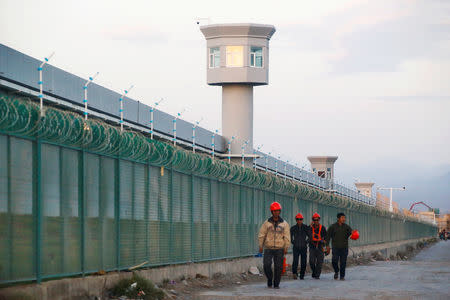Nadya Suleman, aka Octomom, took the world by storm in January 2009 when she had an exceptionally large number of children on her own – eight to be exact – in one pregnancy. It was, in fact, a record-breaking pregnancy in many ways, Moreover, the methods Nadya and her doctor used to get her pregnant raised many eyebrows. Many criticized her for her life decisions while others adored her. One thing is for sure – America simply couldn’t look away from Nadya Suleman and her growing family. But even at her lowest points, Nadya Suleman never gave up. Read on to find out what she and her and her family are up to today.
Monday, May 27, 2019
Nadya Suleman Octomom
Nadya Suleman, aka Octomom, took the world by storm in January 2009 when she had an exceptionally large number of children on her own – eight to be exact – in one pregnancy. It was, in fact, a record-breaking pregnancy in many ways, Moreover, the methods Nadya and her doctor used to get her pregnant raised many eyebrows. Many criticized her for her life decisions while others adored her. One thing is for sure – America simply couldn’t look away from Nadya Suleman and her growing family. But even at her lowest points, Nadya Suleman never gave up. Read on to find out what she and her and her family are up to today.
Tuesday, May 7, 2019
Deportation Turkey
Deportation decisions are made by the Directorate General of Migration Management (DGMM) office responsible for the province where a person facing deportation is living.
You can be deported from Turkey if you:
- Are convicted of a crime resulting in imprisonment.
- Are found to be a member or supporter of a terrorist or criminal organization.
- Use forged or fake documents to enter Turkey, or get a visa or a residence permit using forged or fake documents.
- Work in Turkey without a work permit, or make a living in Turkey through illegal means.
- Pose a threat to public order, safety, or health.
- Stay in Turkey for more than ten days beyond the validity period of your visa or visa exemption, or if your visa or visa exemption is canceled.
- Apply for a residence permit more than ten days after your previous residence permit has expired and don't provide a valid reason for your overstay.
- Remain in Turkey after your residence permit has been canceled.
- Enter or exit Turkey illegally, without going through the proper procedures.
- Enter Turkey while banned from doing so.
- Remain in Turkey for more than ten days after your application for a residence permit has been rejected. However, if you go to a border gate to leave Turkey voluntarily, you may not be deported.
Administrative Detention
You can be physically detained and placed in a detention facility if you:
- Are an escape risk.
- Have violated the laws concerning the entry and exit procedures of Turkey.
- Have used forged documents
- Didn't leave Turkey by a date when you were ordered to leave without a valid reason.
- Pose a threat to public order, safety, or health.
Maximum Detention Period
The maximum amount of time you can be detained is six months. However, this can be extended for another six months if you are uncooperative, causing the courts to be unable to make a decision. It can also be extended if you have no documents showing your country of origin, or if such documents are fake or have been forged.
Deportation Decision Reviews and Release from Administrative Detention
The provincial government typically reviews the cases of those in administrative detention every month. If it is found that your detention is no longer necessary, you may be released, but required to remain at a certain address and periodically report to government officials.
Countries You Can Be Deported To
- Your country of origin.
- The country you were in before arriving in Turkey.
- A third country as decided by immigration officials.
Travel Expenses
If you are deported, you are responsible for paying the travel expenses. If you are unable to pay the expenses, the DGMM will pay them. If the DGMM pays any part of your travel expenses, then after you are out of the country for the duration of your re-entry ban, you can only return to Turkey after you have paid back whatever money the DGMM has paid.
If you meet any of the criteria above for deportation (usually it is because of a significant overstay), contact your country's embassy or consulate. They should be able to assist you in turning yourself in, so you can leave Turkey voluntarily. Do NOT wait until you are caught staying in Turkey illegally. "Administrative detention" is another word for going to jail, and is a very unpleasant experience. And it only takes a policeman asking you to identify yourself, or someone making a call to the authorities, for you to be caught.
External Links
Fines and Bans for Overstaying Your Visa or Residence Permit: Overstays are more likely to result in a fine or a re-entry ban. Learn about those here.
Calculator of travel days remaining under a Schengen short-stay visa: You can use this calculator by entering your visa validity period and how many days you have been in Turkey, to determine how many days remain before you oversta
Calculator of travel days remaining under a Schengen short-stay visa: You can use this calculator by entering your visa validity period and how many days you have been in Turkey, to determine how many days remain before you oversta
Saturday, May 4, 2019
Four Palestinians killed in Gaza after army says soldiers wounded
Four Palestinians killed in Gaza after army says soldiers wounded

At least 269 Palestinians have been killed by Israeli fire since the protests began in March 2018, the majority along the border.

Ilhan Omar is anti-Semitic: Crazy Lunatic Meghan McCain.
China putting minority Muslims in 'concentration camps,' U.S. says
WASHINGTON (Reuters) - The United States accused China on Friday of putting well more than a million minority Muslims in "concentration camps," in some of the strongest U.S. condemnation to date of what it calls Beijing's mass detention of mostly Muslim Uighur minority and other Muslim groups.
The comments by Randall Schriver, who leads Asia policy at the U.S. Defense Department, are likely to increase tension with Beijing, which is sensitive to international criticism and describes the sites as vocational education training centers aimed at stemming the threat of Islamic extremism.
Former detainees have described to Reuters being tortured during interrogation at the camps, living in crowded cells and being subjected to a brutal daily regimen of party indoctrination that drove some people to suicide.
Some of the sprawling facilities are ringed with razor wire and watch towers
The (Chinese) Communist Party is using the security forces for mass imprisonment of Chinese Muslims in concentration camps," Schriver told a Pentagon briefing during a broader discussion about China's military, estimating that the number of detained Muslims could be "closer to 3 million citizens."
Schriver, an assistant secretary of defense, defended his use of a term normally associated with Nazi Germany as appropriate, under the circumstances.
When asked by a reporter why he used the term, Schriver said that it was justified "given what we understand to be the magnitude of the detention, at least a million but likely closer to 3 million citizens out of a population of about 10 million.""So a very significant portion of the population, (given) what's happening there, what the goals are of the Chinese government and their own public comments make that a very, I think, appropriate description," he said.
The Chinese embassy in Washington did not immediately respond to a request for comment.
U.S. Secretary of State Mike Pompeo on Thursday used the term re-education camps to describe the sites and said Chinese activity was "reminiscent of the 1930s."
The U.S. government has weighed sanctions against senior Chinese officials in Xinjiang, a vast region bordering central Asia that is home to millions of Uighurs and other Muslim ethnic minorities. China has warned that it would retaliate "in proportion" against any U.S. sanctions.
The governor of Xinjiang in March directly dismissed comparisons to concentration camps, saying they were "the same as boarding schools."
U.S. officials have said China has made criminal many aspects of religious practice and culture in Xinjiang, including punishment for teaching Muslim texts to children and bans on parents giving their children Uighur names.

3 million senior citizens in the US are still paying off their student loans
- More than 3 million Americans aged 60 and older owe more than $86 billion in unpaid student loans.
- Many older Americans are now turning to their Social Security benefits to pay student debt, CBS News reported.
- Student debt has been at the forefront of 2020 presidential campaigns, with Sen. Elizabeth Warren proposing canceling up to $50,000 in student-loan debt for 42 million Americans last month.
It's not just young people paying off college debt - senior citizens say they're still paying off student loans they took out for school decades ago.
More than 3 million Americans aged 60 and older currently owe more than $86 billion in unpaid student loans, according to Consumer Financial Protection Bureau (CFPB) data seen by CBS News. Recent data available online from 2017 showed the number was $66.7 billion two years ago.
A new INSIDER poll released Friday found that a big majority - 77% - of likely Democratic primary voters support Warren's plan, and 36% said they strongly support it. Overall, 57% of Americans polled said they at least somewhat support Warren's plan, while 21% at least somewhat oppose it. $171M Garnished From Older Americans' Social Security To Repay Student Debt In 2015
As a result, in 2015 the Department of Education collected $4.5 billion on defaulted student loans, of which $171 million — or about 10% — was collected through Social Security garnishments, also known as offsets.
To make matters worse, the report found that for each time a borrower’s Social Security was offset, they were charged an offset fee of $15. Over the course of a year, borrowers paid $180 in fees.
Additionally, about 71% of the funds collected through offsets were applied to the fees and interest of the loan debt, while just 28% went to the loan balance. As a result, many debtors actually saw their loan balance increase rather than decrease over time.
Because most borrowers remained in default for more than five years after first having their benefits offset and with most borrowers living on a fixed income dependent on their benefits, the report found that after the garnishments thousands of older student debt holders are now living under the poverty level.
In fact, because the Social Security offset threshold has not been adjusted for increases in cost of living, the number of older American who have their benefits offset leading them to live below the poverty level has grown significantly in the last decade.
In 2004, about 8,300 borrowers 50 years or older received benefits below the poverty level. That figure increased to 67,300 in 2015.
Subscribe to:
Posts (Atom)
